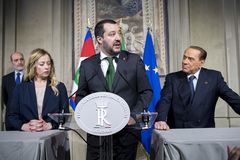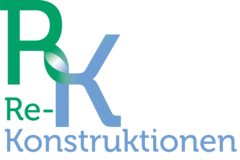On the "Transformation" of the New Political Elites in Italy – from the 1990s to Today
PD Dr. Francesco Di Palma

Giorgia Meloni, Matteo Salvini and Silvio Berlusconi in the Quirinal, 2018 (Quirinale.it, Attribution, via Wikimedia Commons, URL: https://commons.wikimedia.org/wiki/File:Meloni_Salvini_Berlusconi.jpg)

As part of the project "Re-Constructions of the German-Italian Academic Forum for Contemporary History and Politics" (financed by the Federal Ministry of Education and Research [BMBF], in cooperation with Villa Vigoni – German-Italian Centre for the European Dialogue).
This research project examines the question of whether, to what extent and why there has been a "transformation" of the political elites in Italy over the last three decades. The intention is to conduct a prosopographical study in which the socio-cultural origins and professional careers of selected elites are traced and critically explained. Against this background, the rise of "right-wing populist" movements is given special attention.
The move towards a digital society, which received decisive impetus in Italy after the implosion of the "First Republic" (with the mani pulite investigation) in the early 1990s, posed manifold challenges for political parties. The functional conditions of democracy underwent a radical modification as a result of this structural change in the use of digital technologies in the public sphere that also completely transform access to information. These developments have had repercussions on the functioning of political parties, and have opened up possibilities for the legal control of the public administration through digitalisation. At the same time, modernisation processes have had unexpected consequences, such as a conspicuous loss of membership and supporters for popular political parties and a general "disenchantment with politics" among the population.
What strategies are parties and their new elites pursuing to address communication problems and their very raison d'être? Has the promotion of active party membership changed in the last three decades, and if so, to what extent? What is the relationship between personal competence and collective benefit?
The primary source collections of the Camera dei Deputati and Senato della Repubblica, among others, form a crucial basis when attempting to answer these questions. The methodological approach of the study means that egodocuments and interviews with contemporary witnesses also play an important role.
PD Dr. Francesco Di Palma
Project Researcher project "Re-Constructions of the German-Italian Academic Forum for Contemporary History and Politics" (financed by the BMBF)
(2021–2023)

